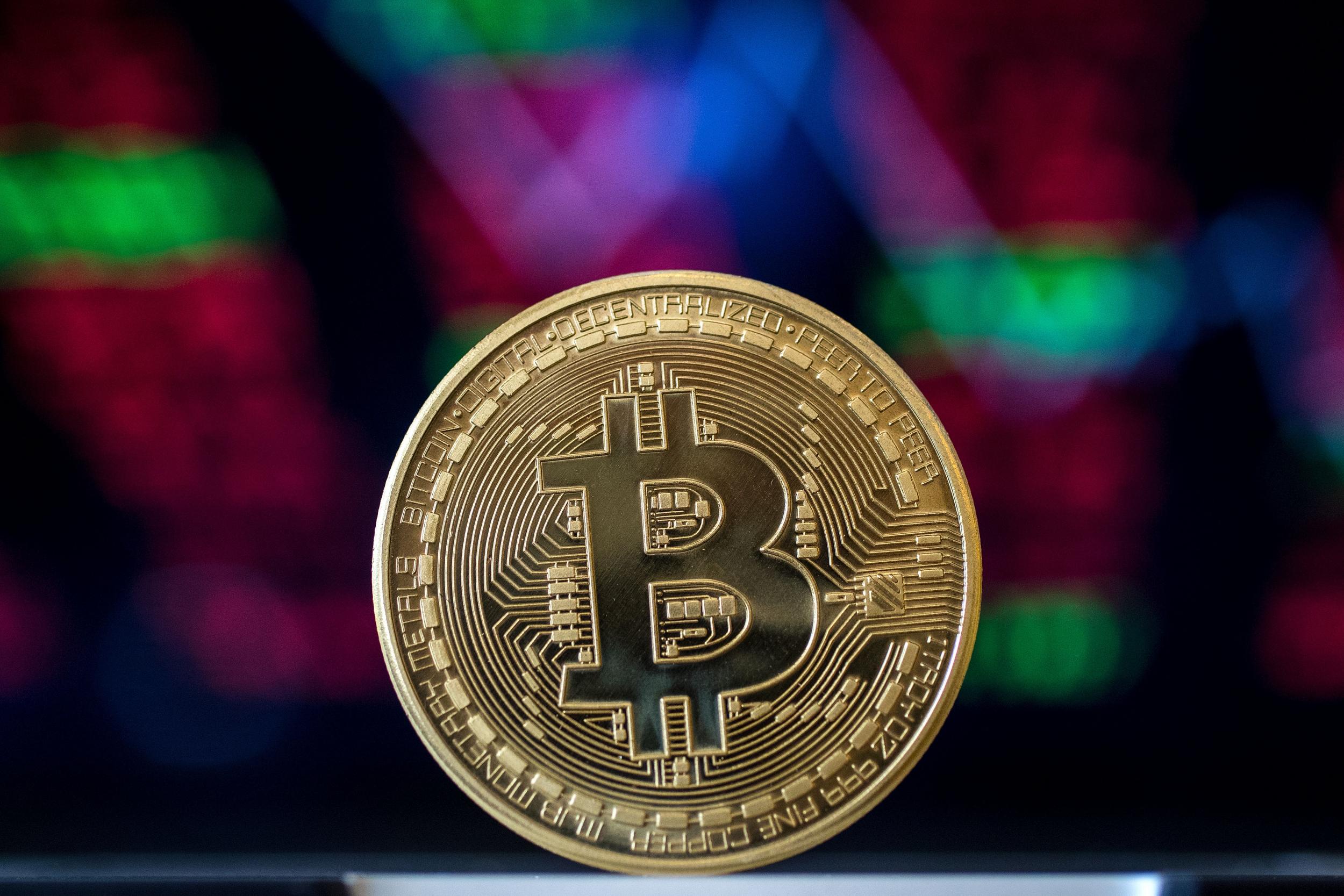The Independent's journalism is supported by our readers. When you purchase through links on our site, we may earn commission.
Bitcoin trading comes to Goldman Sachs after investment bank hires first cryptocurrency trader
The investment bank recognised bitcoin's potential as a store of value, similar to gold
Goldman Sachs will finally launch its widely-rumoured bitcoin trading operation after the investment banking giant succumbed to pressure from clients enthusiastic about cryptocurrency.
The move is set to make Goldman Sachs the first major Wall Street bank to open a bitcoin trading desk, however it will only offer a limited numbers of derivatives at first.
The creation of the trading platform, first reported by The New York Times, came after senior figures at Goldman Sachs concluded that bitcoin is not a fraud or simply a speculative bubble.
The operation, led by the firm's first ever "digital assets" trader Justin Schmidt, is expected to begin within the next few weeks, though an exact date has not been set. When it launches, Goldman Sachs will use its own funds to trade bitcoin futures on behalf of clients.
“This shouldn’t come as a huge surprise to anyone who has been paying attention to cryptocurrencies over the last 18 months. Any forward-looking financial institution needs to understand this technology and accept its enormous potential," Matthew Newton, an analyst at cryptocurrency retailer eToro, told The Independent.
“Despite some initial posturing, the reality is most big banks have already invested significant amounts in research and development into blockchain technology, and cryptocurrencies themselves. It will still take time for institutional investors to fully come around – and the fact that Goldman won’t be buying or selling actual coins suggest some scepticism remains – but there’s a growing acceptance that these assets are here to stay.”
The investment bank will likely wait until there is more regulatory certainty surrounding bitcoin and other virtual currencies before it begins directly trading cryptocurrency.
The news of Goldman Sachs' latest initiative comes as the head of Barclays dismissed rumours that the British banking giant is planning to launch its own cryptocurrency trading desk.

Barclays CEO Jes Staley noted the potential of cryptocurrency to transform finance, however said that he was still weary of its reputation of being used for criminal activities.
"Cryptocurrency is a real challenge for us because, on the one hand, there is the innovative side of it wanting to stay in the forefront of technology's improvement in finance," Mr Staley said at a meeting with shareholders on Tuesday.
"On the other side of it, there is the possibility of cryptocurrencies being used for activities that the bank wants no part of."
These same concerns were raised by Christine Lagarde, the head of the International Monetary Fund (IMF), in an official blogpost in March.
In it, Ms Lagarde said that the semi-anonymous nature of cryptocurrencies meant they were potentially a major new vehicle for money laundering and even financing terrorism.
Just over a month later, however, Ms Lagarde called for an "even-handed approach" to cryptocurrencies in a follow-up blogpost.
Ms Lagarde said that the transformative potential of the technology could have a "significant impact" on the way people save, invest and pay bills.
“Before crypto-assets can transform financial activity in a meaningful and lasting way, they must earn the confidence and support of consumers and authorities,” Ms Lagarde said.
“An important initial step will be to reach a consensus within the global regulatory community on the role crypto-assets should play. Because crypto-assets know no boundaries, international cooperation will be essential.”
Join our commenting forum
Join thought-provoking conversations, follow other Independent readers and see their replies
Comments
Bookmark popover
Removed from bookmarks